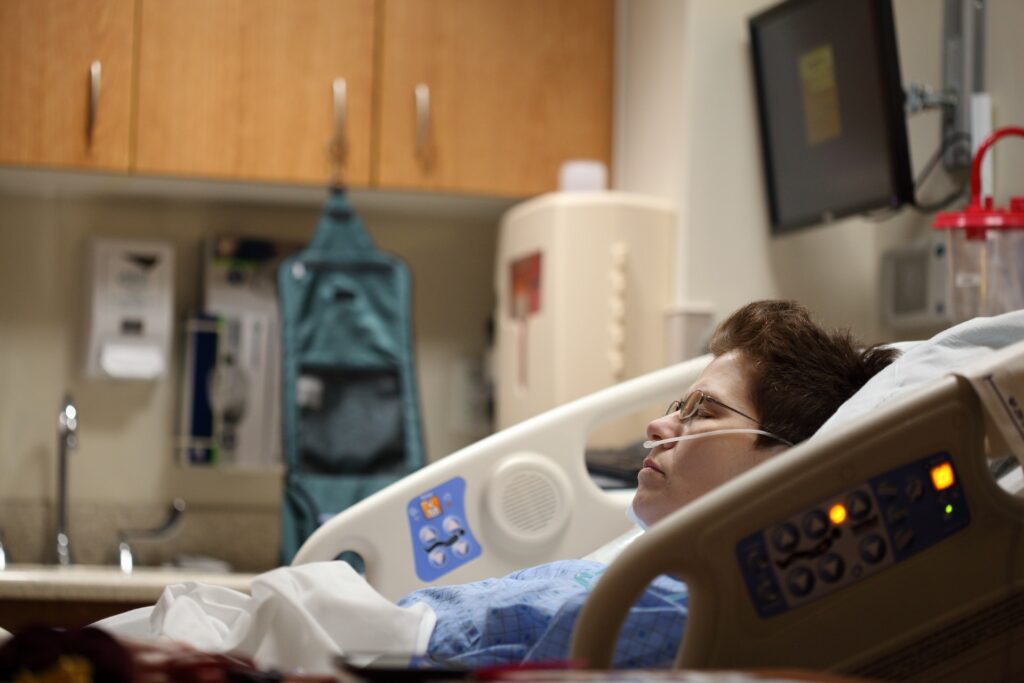Hospital Bedsores and Medicare: Coverage and Legal Implications

Hospital Bedsores and Medicare: Coverage and Legal Implications
When patients enter hospitals, they expect quality care to help them recover from illnesses or injuries. Those in assisted living or similar care facilities depend on staff members to perform specific tasks to safeguard their health. What they don’t anticipate is developing bedsores or other new health problems due to insufficient care.
If you or a loved one has a hospital-acquired condition such as bedsores, you may wonder if Medicare covers treatment expenses. You likely also want to hold those responsible accountable for the pain and inconvenience caused by these avoidable injuries. Gordon & Partners address these concerns.
What Is a Bedsore?
Patients who spend significant time in one position, such as those with limited mobility, who are bedridden or spend considerable time in wheelchairs, are at a high risk for developing bedsores. Sometimes called pressure injuries or pressure ulcers, bedsores can affect the skin and underlying tissues.
Unrelieved pressure often cuts off blood flow to the skin and causes it to die, potentially resulting in pressure injuries that cause:
- Pain, discomfort, heat and itching
- Discoloration
- Open sores or deep, crater-like wounds
- Infections
There are four stages of pressure injuries, each with progressively worse health risks. Stage four, the most severe stage, may damage bones, muscles, joints and tendons. Further complications can include bacteremia, bone infections, cancer, cellulitis and necrotizing fasciitis.
While treating these sores during their early stages often has favorable outcomes, the longer the wounds remain unaddressed, the more dangerous they become. Patients can die or suffer permanent consequences from pressure injuries and associated complications.
Are Bedsores Preventable?
Patients with some health conditions have more risk of bedsores, but these pressure injuries often result from poor care. Most pressure injuries wouldn’t happen if caregivers:
- Assist patients in changing positions regularly (every 15 minutes for those sitting upright and every two hours for others)
- Ensure that patients stay hydrated and eat well-balanced meals
- Keep skin dry and clean
- Inspect areas prone to bedsores for signs of redness daily
- Provide padding between skin and hard surfaces
Hospital and care facility personnel are responsible for providing comprehensive attention to all patients. If skin conditions or patient feedback indicate that a bedsore is forming, treatment and preventive measures should begin immediately.
Some patients, including those who are unconscious or paralyzed, don’t realize they have bedsores. If caregivers don’t provide high-quality care, pressure injuries can develop and worsen quickly.
Are Pressure Injuries Common in U.S. Hospitals?
The Centers for Medicare & Medicaid Services mandates patient care and safety standards through its Hospital-Acquired Conditions program. This program implements financial penalties and other punishments against hospitals that don’t care for patients properly.
Even so, it may surprise you that approximately 2.5 million patients develop bedsores in U.S. hospitals every year. In 2022, reduced payments due to HACs impacted 764 American hospitals. The overwhelming majority of these wounds are preventable.
Does Medicare Cover Treatment for Hospital-Acquired Bedsores?
Many Americans rely on Medicare benefits for their healthcare expenses. A “never event,” as defined by Medicare, is a condition that should never happen to hospitalized patients. Acquiring pressure injuries should never happen in hospitals.
Under the HAC program guidelines, Medicare does not reimburse hospitals for treating hospital-acquired pressure injuries. Further, hospitals are prohibited from billing patients for these costs.
While the HAC Medicare reimbursement standards apply to many hospitals, others are not included.
What Are Bedsore Treatment Options?
Treatments can vary significantly for each patient, depending on the wound’s location, severity and overall health. Physicians and wound care specialists may:
- Prescribe antibiotics and other medications
- Use gauze or other dressings to protect the affected area
- Debride infected, damaged or dead skin
- Perform skin grafts to replace damaged areas with healthy skin
- Order negative pressure wound therapy
Regardless of other treatment options, keeping the skin clean and dry is vital. Reducing friction and pressure on wounds is also essential. Ensuring that patients eat a balanced diet with plenty of protein and drink enough water can help treatments to be more effective.
Treatments are often painful and may require several months. They may also be costly, with annual costs associated with U.S. bedsore treatments measured in billions of dollars.
What Are the Legal Implications of Hospital-Acquired Bedsores?
Hospitals, physicians and other professional caregivers must legally exercise a high level of care for all patients. Failure to meet this level of care can result in medical malpractice or wrongful death claims.
Healthcare professionals may face malpractice claims for:
- Actions or omissions
- Mistakes
- Not following standard practices
- Intent to cause harm
If a patient who passed away had a valid medical malpractice claim, eligible survivors may qualify to file a wrongful death claim. Negligence is the basis for these cases.
To prove negligence, you must show that:
- Someone owed the patient a duty of care.
- That party breached their duty of care.
- The breach caused an injury.
- The injury directly resulted in damages or losses.
Victims or their families deserve compensation for hospital-acquired bedsores and their resulting consequences. However, pursuing pressure injury cases is often tricky if you don’t have legal representation.
How Can an Attorney Help?
Hospitals and physicians have medical malpractice insurance, and their insurance companies have teams of lawyers who will fight your claim. When you hire an experienced attorney, we will fight back. Proper care and attention could prevent most bedsores from developing, and you deserve compensation for these avoidable injuries.
Opposing insurance companies may attempt to deny or minimize your claim, stating that:
- You had bedsores before being admitted to the hospital.
- Your pressure injury was unavoidable because of an underlying health condition.
- You wouldn’t let caregivers reposition you or treat your bedsores.
- Your body didn’t respond to repositioning or treatment, although medical professionals met their duty of care.
- The intangible repercussions aren’t as severe as you say they are.
Most people don’t have the resources to fight these allegations successfully. An experienced personal injury lawyer can investigate your claim, gathering evidence to support your case. We can enlist medical expert witnesses to testify on your behalf. Also, if your claim turns into a bedsores lawsuit, we are fully prepared and ready to represent you in court.
Most medical malpractice victims qualify to receive compensation for the intangible consequences of pressure injuries, but insurance companies do not want to pay medical malpractice claims for conditions such as:
- Pain and suffering
- Permanent disfigurement or disability
- Depression or anxiety
Wrongful death claims may include other damage claims, including the loss of companionship, guidance and instruction, financial support and inheritance. Funeral and burial costs are usually included.
Insurance companies often use underhanded tactics to avoid paying for valid damages. When you hire Gordon & Partners, we won’t let these companies take advantage of you. In fact, most claimants with legal representation receive substantially more compensation than those who handle their claims alone.
Why Should You Hire Gordon & Partners?
The 20 attorneys at Gordon & Partners have over 200 years of combined experience in personal injury law. Our dedication to fighting for the rights of our injured clients and helping them to recover maximum compensation for their damages has resulted in winning millions of dollars for them.
Gordon & Partners has served injured victims in South Florida since 1993, and we would like to assist you as well. You won’t pay fees unless we obtain compensation for you, so contact us today for your free, no-obligation case review. Call us 24/7 at 855-722-2552, reach out via live chat or submit our online case evaluation request form.
Free Case Evaluation
Verdicts & Settlements
Jury verdict for the wrongful death of a 63-year-old man survived by his widow.
Jury verdict for the wrongful death of a 97-year-old woman at an ALF.
Recovery for family of infant killed during bath at babysitter’s home.
Related News
- Common Signs of Nursing Home Abuse You Need to Know
- What is Nursing Home Abuse and Neglect – and How Do They Differ?
- Preventing Bedsores: How Patients and Families Can Advocate for Better Care
- Frequently Asked Questions About Bedsores Lawsuits
- Choosing the Right Bedsores Lawyer: Factors to Consider
- Statute of Limitations for Bedsores Lawsuits: Don’t Miss Your Chance for Justice




 1-855-722-2552
1-855-722-2552 – Client Reviews
– Client Reviews